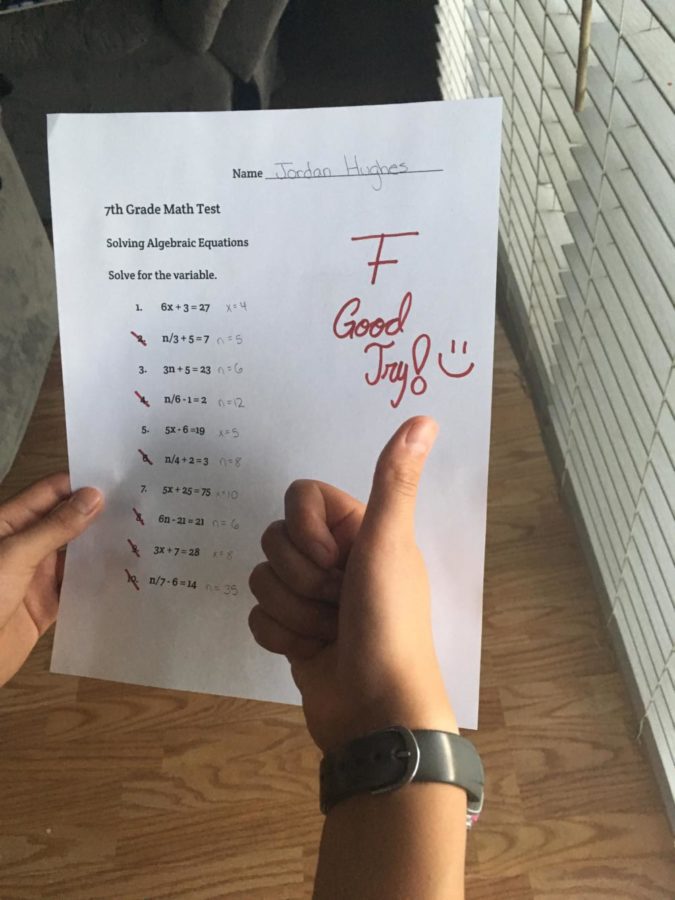Competitive Classes: A Pro or a Con?
Picture by Melissa Canales
We have all experienced the participation award, the pat on the back, or the “good try” from parents, teachers, and coaches. Staying neutral on the topic is nearly impossible. On one side, there are the people who think that this sort of encouragement can help kids build confidence and enjoy what they are doing rather than just focusing on winning. On the other side are those of us who firmly believe that participation prizes should be abolished for good. It is true both ends of the stick hold their own unique issues, but at the end of the day, competition is a necessity for students in a classroom environment.
As time has progressed, the word “competition” has garnered a bad reputation. Upon uttering the word, people are filled with images of kids shoving, pushing, and fighting each other for the end prize. However, the truth of competition is that it can provide students with experiences otherwise not gained in a classroom.
Competition doesn’t just end in the classroom, though. It has become a common factor in the everyday lives of so many people: businesses attempt to gain customers from other businesses, coworkers are in an everyday race to get a promotion, high school students all strive to get a spot in the university of their dreams. So, sheltering children from rivalries is really doing more damage than good. Parents that are afraid of seeing their child get hurt argue that students will see plenty of this sort of thing once they enter the real world. But shouldn’t school prepare their pupils for what awaits in the next stages of their lives?
Trying to teach a teenager that they should not worry about winning and should just do their best and be proud is a surefire way to set them up for failure later down the line. Just try to imagine what a shielded kid will do as a full grown adult facing defeat for the first time. After years of being congratulated for just showing up, they will be expected to simply adjust to the world of everyday battles and constant struggles.
Additionally, enduring losses and failures is tough on just about everybody the first time around. While some can handle setbacks spectacularly, the majority of us need to learn how to first deal with the fact that we cannot always win. Our self esteem may suffer, and we may mope around for a short period of time, but in the end, the only way to go is to start climbing back up. This sort of life lesson takes time to be mastered. To just start the experience as an adult is sure to cause many rough years ahead.
However, even stepping away from some of the long term benefits of exposing students to competition at an early age, there is a plethora of instant perks that come with having rivalries within a classroom. For starters, having challengers in the classroom that all compete against each other to be number one provides a level of motivation that a teacher normally cannot give to his or her pupils. It inspires students to accomplish more than just the bare minimum. By doing so, students are immediately more likely to be learning, understanding, and retaining more information than when students are disengaged in school. They have a reason to strive for more than before, in contrast to someone who simply refuses to step out of their comfort zone and push their limits. This sort of behavior will not only have a positive influence of the student’s grade in the class, but it also sets up a new mindset of: ‘I can do it better next time.’
By having rivals in a class, students also begin to identify their weaknesses as compared to other students instead of believing they are the best simply because they have never been presented with a challenger. Not only can they begin to spot where they are coming up short, but they are determined to work harder in these areas to be able to celebrate a victory later down the line.
Competition has been a sticky situation for many different people. Today, we have seen adults praise kids and teens for things that can hardly be passed off as an “accomplishment” and it is not getting any better. As the years pass, the meaning of competition is twisted into the thought of cruel behavior. The reality of it is that engaging in competitive activities in the classroom environment can prove to have many benefits in the moment and the future. It can’t be denied that competition can be frightening when failure knocks on our doors, but we must also accept that with those tragic times come the triumphant moments in which we finally celebrate a victory. In those glorious days, who really wants a participation ribbon?

In one word, I describe myself as colorful. I adore watching sunrises and sunsets, reading books by candlelight, going on picnics with the stereotypical...








